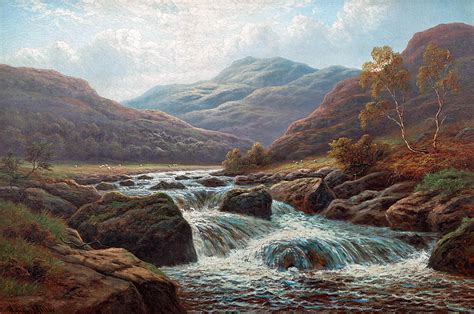A Quote by William Blake
It is the greatest of crimes to depress true art and science.
Related Quotes
The fairest thing we can experience is the mysterious. It is the fundamental emotion that stands at the cradle of true art and true science. It is the source of all true art and science. He who knows it not and can no longer wonder, no longer feel amazement, is as good as dead, a snuffed-out candle.
True art and true science possess two unmistakable marks: the first, an inward mark, which is this, that the servitor of art and science will fulfil his vocation, not for profit but with self- sacrifice; and the second, an external sign, his productions will be intelligible to all the people whose welfare he has in view.
How often people speak of art and science as though they were two entirely different things, with no interconnection. That is all wrong. The true artist is quite rational as well as imaginative and knows what he is doing; if he does not, his art suffers. The true scientist is quite imaginative as well as rational, and sometimes leaps to solutions where reason can follow only slowly; if he does not, his science suffers.
Gradually, ... the aspect of science as knowledge is being thrust into the background by the aspect of science as the power of manipulating nature. It is because science gives us the power of manipulating nature that it has more social importance than art. Science as the pursuit of truth is the equal, but not the superior, of art. Science as a technique, though it may have little intrinsic value, has a practical importance to which art cannot aspire.
True art means if it helps you to become silent, still, joyous; if it gives you a celebration, if it makes you dance—whether anybody participates with you or not is irrelevant. If it becomes a bridge between you and God, that is true art. If it becomes a meditation, that is true art. If you become absorbed in it, so utterly absorbed that the ego disappears, that is true art.
There are two kinds of truth; the truth that lights the way and the truth that warms the heart. The first of these is science, and the second is art. Without art science would be as useless as a pair of high forceps in the hands of a plumber. Without science art would become a crude mess of folklore and emotional quackery.





































